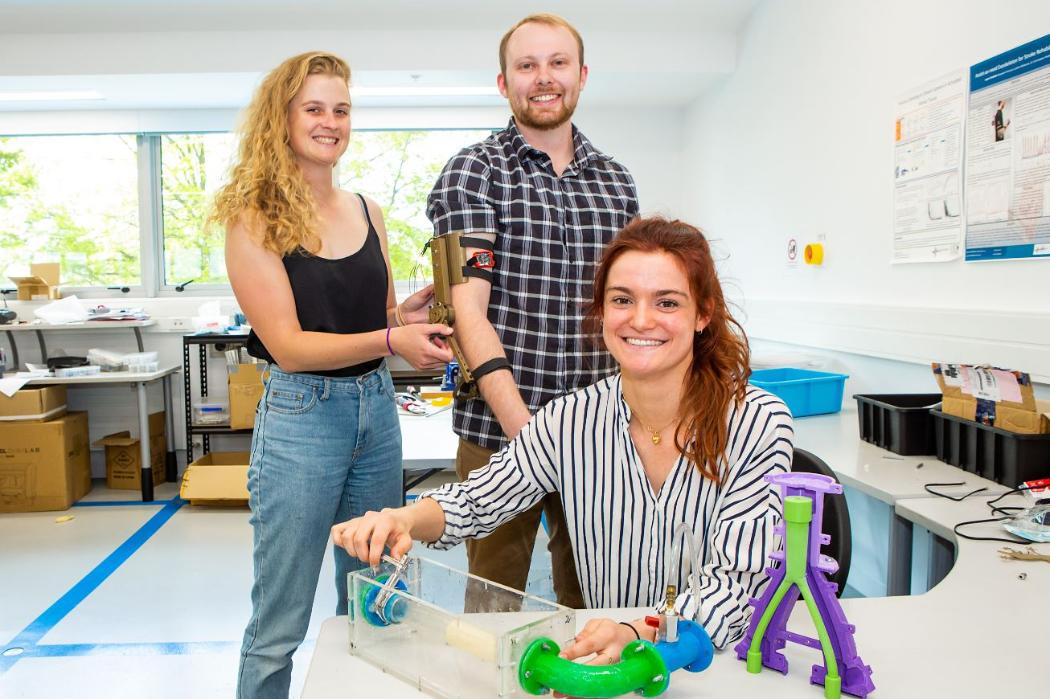Scholarships enable life-changing research to continue
Petra Williamson is currently studying cardiovascular diseases and the effects of stenting on an artery. Through the use of Particle Image Velocimetry modelling techniques, Petra’s research will identify potential causes for known failures in high risk stents to aid revision techniques and future stent development.
Petra says the HOPE Foundation Scholarship was the difference between pausing or continuing her PhD during the COVID-19 lockdown.
“The scholarship enabled me to purchase a 3D printer that allowed me to continue prototyping artery moulds for the silicone arteries to be manufactured from.
“The scholarship has removed some of the financial stress, so I am grateful to have received the HOPE Foundation Scholarship, especially in a year like this one has been.”
Jessica Fitzjohn’s research is on using nonlinear mechanics models to develop a new method for non-invasive breast cancer diagnostics. Using data from a clinical trial involving digital imaging of actuated breast tissue, the images are converted to surface motion measurements, which are used to identify models and infer mechanical properties of breast tissue, with the potential to create automated diagnostic methods based on tissue properties.
Jessica says her research will improve the quality of life for women by providing a low-cost, zero-risk, more comfortable breast cancer screening method.
“A comfortable screening method will raise compliance and increase early detection, providing the best chance of survival due to increased treatment options.
“I greatly appreciate being selected for the HOPE Foundation Scholarship – for the financial assistance but also the encouragement that others believe my research to be worthwhile.”
Logan Chatfield’s research focuses on the development of a hybrid assist-as-need exoskeleton for stroke rehabilitation. With stroke being one of the leading causes of disability, combined with an increasing elderly population, Logan says there is great motivation to improve stroke rehabilitation.
“My research looks at how the motor of the exoskeleton can be augmented with functional electrical stimulation, combining their physiological and design benefits, to improve how assistance is provided. I am also looking at how voluntary effort can be estimated from recording the electromyography of the muscle to optimise assistance, while maximising active patient participation.
“The aim is to independently control and balance the assistance to suit a patient’s needs, and to promote neuroplasticity to lead to better recovery.”
Logan says the scholarship has enabled him to continue researching a subject area he is passionate about, with the goal to expand on his research to provide hospitals and patients with a low-cost, easy-to-use, and effective rehabilitation device.
HOPE Foundation Executive Officer Dr Jill Waters says the scholarship selection focus was on supporting relevant multidisciplinary research that will make a difference to the lives of older New Zealanders and ultimately, improve the health and well-being of all New Zealanders as they age.
“We were impressed not only with the high calibre of the UC candidates but most importantly, the passionate application of their engineering skill set to do greater good, by looking at improving diagnostic techniques and medical outcomes.
“COVID-19 has underlined just how important quality research is when dealing with uncertainty and life challenging changing events.”

